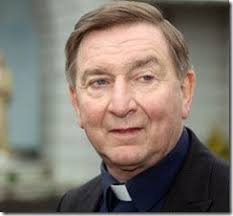Advent Group - Supporting Priests & Religious since 1969
50th Anniversary of the Advent Group
- Written by: Alex Walker
{BreezingForms : 50th}
Australian priests will push for married priests and optional celibacy after a 'cathartic' royal commission
- Written by: Joanne McCarthy
The National Council of Priests believes Pope Francis would approve a request from Australia’s bishops to allow married priests in remote parts of the country where the lack of priests is a critical and long-standing issue, council chairman Father James Clarke said after a conference last week which considered the royal commission findings.
Priest says celibacy should no longer be compulsory
- Written by: The Tablet
Speaking to The Tablet, the Passionist priest, who is 50 years ordained next year, made his comments in the context of falling Mass attendances in Ireland and the lack of vocations to the priesthood. Referring to the drop in Mass attendance from over 90 per cent when Pope John Paul II visited Ireland in 1979, to 19 per cent in some urban areas today, he said that figure could be as low as 9 per cent if the older age group is excluded. “We have prayed for years, particularly in the western world, for an increase in vocations. We cannot say that God isn’t listening because we absolutely believe he is. But the vocations are not there, so maybe we are asking God for the wrong gift,” the 73-year-old said.
Read more: Priest says celibacy should no longer be compulsory
The Funeral of Joe Mulrooney
- Written by: Alex Walker
Joe's funeral will take place at Cockfosters on Monday 17th September at 11:00 am.
Christ the King
29 Bramley Road
Cockfosters
London
N14 4HE
020 8449 6648
Download Towards Priests in Adult Communities by Joe Mulrooney, 2005
Page 13 of 25
 Broadcaster and newspaper columnist Fr Brian D’Arcy has said the Church urgently needs to consider making clerical celibacy optional, as well as ordaining married men and women.
Broadcaster and newspaper columnist Fr Brian D’Arcy has said the Church urgently needs to consider making clerical celibacy optional, as well as ordaining married men and women.